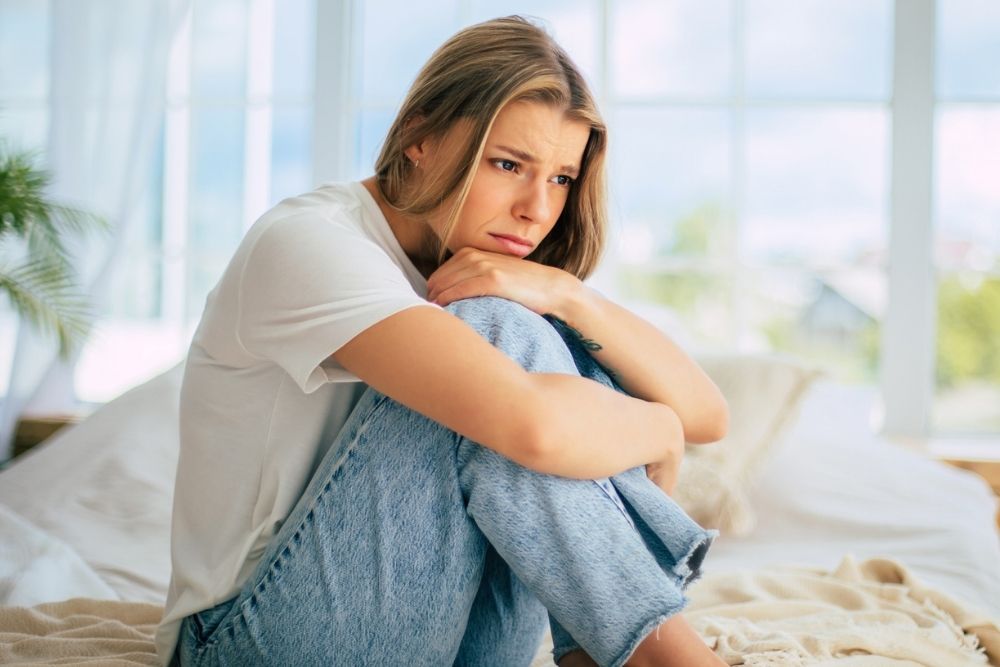Anxiety has a way of taking over your life. It’s not just the racing thoughts, the pounding heart, or the constant feeling that something bad is about to happen—it’s the exhaustion of living in that state day after day. When you’re anxious, you may feel desperate for relief, and sometimes that desperation can lead you toward unhealthy coping mechanisms like drugs or alcohol. Over time, anxiety and addiction can form a dangerous cycle, each one making the other worse.
Why Anxiety Fuels Addiction
Anxiety can make even simple tasks feel overwhelming. You might start to avoid situations that make you nervous, withdraw from people, or struggle to focus on anything other than your worries. In the middle of that storm, substances may seem like a quick fix.
Alcohol, drugs, or even prescription medications can temporarily dull the symptoms of anxiety. They might make you feel calmer, more confident, or more in control—at least for a little while. But that relief is short-lived. Once it wears off, your anxiety often comes back stronger. You may feel more stressed, guilty, or even ashamed, which can trigger the urge to use again. This is how anxiety can quietly feed addiction:
- Self-medicating becomes a habit. Using substances to manage anxiety can turn into your default coping method.
- Tolerance builds quickly. Over time, you may need more to get the same effect, increasing the risk of dependence.
- Anxiety symptoms worsen. Many substances interfere with brain chemistry, which can heighten anxiety once the effects wear off.
- The cycle becomes self-sustaining. Anxiety fuels substance use, and substance use fuels more anxiety.
Signs to Watch Out For
It can be hard to tell when anxiety has started driving your substance use. You might think you’re just trying to take the edge off, but the truth is, you may already be caught in the loop. Here are some warning signs that anxiety and addiction may be connected in your life:
- Using substances before stressful events. You feel like you can’t face a social gathering, meeting, or conversation without drinking or using.
- Increased tolerance. You need more of the substance to feel any relief from your anxiety.
- Relying on substances to relax or sleep. You can’t wind down at the end of the day without using.
- Avoiding situations without access to your substance. You skip events or commitments if you can’t drink or use drugs there.
- Heightened anxiety when sober. Your anxiety feels worse when you’re not using, creating a constant pull back toward substances.
If these signs feel familiar, it’s a strong indicator that anxiety may be fueling an unhealthy relationship with drugs or alcohol.
The Dangers of Untreated Anxiety
Anxiety is more than just feeling stressed—it’s a mental health condition that can affect your body, mind, and overall well-being. When left untreated, anxiety can:
- Weaken your immune system, making you more vulnerable to illness.
- Disrupt your sleep, which worsens mood and mental clarity.
- Increase your risk for heart disease due to prolonged stress responses.
- Lead to isolation, straining your relationships and support system.
- Fuel other mental health struggles, such as depression or panic disorder.
When anxiety fuels addiction, these dangers multiply. Substance use can lead to physical dependence, overdose, financial problems, and damage to your relationships. And without proper help, the cycle can feel impossible to break.
How to Treat Anxiety and Addiction Together
Breaking free from anxiety-fueled addiction means addressing both conditions at the same time. Treating just one while ignoring the other often leads to relapse because the underlying issues remain unresolved.
Here’s what effective mental health treatment often includes:
- Dual diagnosis care. This means treating your anxiety and addiction together with a personalized plan.
- Therapy to build coping skills. Techniques like cognitive behavioral therapy (CBT) can help you reframe anxious thoughts and learn healthier ways to handle stress.
- Medication management. For some, anti-anxiety medications—prescribed and monitored by a professional—can be part of the solution.
- Mindfulness and relaxation practices. Deep breathing, meditation, and grounding exercises can calm your nervous system naturally.
- Support groups. Connecting with others at 12-Step support groups, such as AA, can help you understand your struggles and feel less alone, ultimately motivating you to stay on track.
Moving Forward
If anxiety has been pushing you toward substances, it’s not because you’re weak—it’s because you were trying to find relief the only way you knew how. The good news? There are healthier ways to cope, and you don’t have to figure them out on your own.
Recovery isn’t just about quitting substances—it’s about taking back your peace, confidence, and control. With the right support, you can break the cycle, heal your mind and body, and build a life that isn’t ruled by fear.
At Stone River Recovery Center in San Antonio, Texas, we’re here to help you take that first step toward freedom. If you’re ready to address both your anxiety and your addiction, reach out today.





